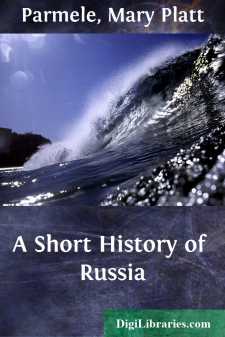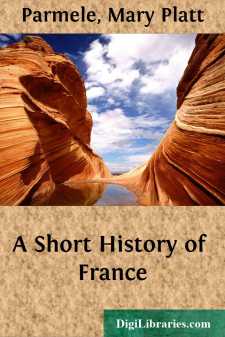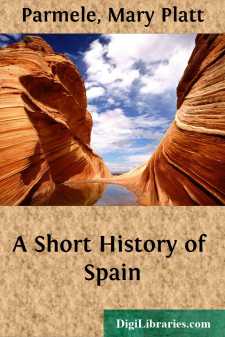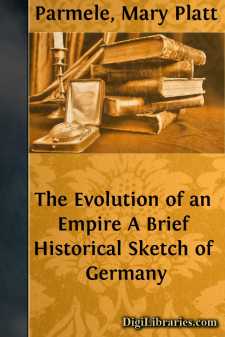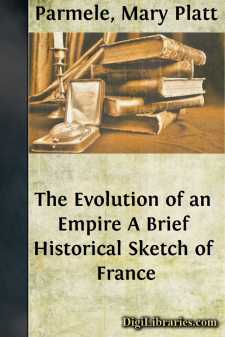Categories
- Antiques & Collectibles 13
- Architecture 36
- Art 48
- Bibles 22
- Biography & Autobiography 815
- Body, Mind & Spirit 144
- Business & Economics 28
- Children's Books 18
- Children's Fiction 14
- Computers 4
- Cooking 94
- Crafts & Hobbies 4
- Drama 346
- Education 58
- Family & Relationships 59
- Fiction 11833
- Games 19
- Gardening 17
- Health & Fitness 34
- History 1378
- House & Home 1
- Humor 147
- Juvenile Fiction 1873
- Juvenile Nonfiction 202
- Language Arts & Disciplines 89
- Law 16
- Literary Collections 686
- Literary Criticism 179
- Mathematics 13
- Medical 41
- Music 40
- Nature 179
- Non-Classifiable 1768
- Performing Arts 7
- Periodicals 1453
- Philosophy 65
- Photography 2
- Poetry 896
- Political Science 203
- Psychology 44
- Reference 154
- Religion 515
- Science 126
- Self-Help 85
- Social Science 82
- Sports & Recreation 34
- Study Aids 3
- Technology & Engineering 59
- Transportation 23
- Travel 463
- True Crime 29
Mary Platt Parmele
Mary Platt Parmele was an American author and historian known for her engaging narratives on historical subjects. Born in 1843, she gained recognition for her works aimed at making history accessible and interesting to a wider audience, particularly through her children's books. Among her notable publications are "A Short History of the World" and "The Story of the World," which highlight her ability to blend educational content with captivating storytelling.
Author's Books:
Sort by:
CHAPTER I The topography of a country is to some extent a prophecy of its future. Had there been no Mississippi coursing for three thousand miles through the North American Continent, no Ohio and Missouri bisecting it from east to west, no great inland seas indenting and watering it, no fertile prairies stretching across its vast areas, how different would have been the history of our own land. Russia...
more...
CHAPTER I. One of the greatest achievements of modern research is the discovery of a key by which we may determine the kinship of nations. What we used to conjecture, we now know. An identity in the structural form of language establishes with scientific certitude that however diverse their character and civilizations, Russian, German, Englishman, Frenchman, Spaniard, are all but branches from the same...
more...
CHAPTER I. The remotest fact in the history of England is written in her rocks.Geology tells us of a time when no sea flowed between Dover and Calais,while an unbroken continent extended from the Mediterranean to theOrkneys. Huge mounds of rough stones called Cromlechs, have yielded up still another secret. Before the coming of the Keltic-Aryans, there dwelt there two successive races, whose story is...
more...
CHAPTER I. No name is more fraught with picturesque and romantic interest than that of the "Spanish Peninsula." After finishing this rare bit of handiwork nature seems to have thrown up a great ragged wall, stretching from sea to sea, to protect it; and the Pyrenees have stood for ages a frowning barrier, descending toward France on the northern side from gradually decreasing heights—but on...
more...
CHAPTER I. Foundation building is neither picturesque nor especially interesting, but it is indispensable. However fair the structure is to be, one must first lay the rough-hewn stones upon which it is to rest. It would be much pleasanter in this sketch to display at once the minarets and towers, and stained-glass windows; but that can only be done when one's castle is in Spain. Would we...
more...
CHAPTER I The remotest fact in the history of England is written in her rocks. Geology tells us of a time when no sea flowed between Dover and Calais, while an unbroken continent extended from the Mediterranean to the Orkneys. Huge mounds of rough stones called Cromlechs, have yielded up still another secret. Before the coming of the Keltic-Aryans, there dwelt there two successive races, whose story is...
more...
CHAPTER I. One of the greatest achievements of modern research is the discovery of a key by which we may determine the kinship of nations. What we used to conjecture, we now know. An identity in the structural form of language establishes with scientific certitude that however diverse their character and civilizations, Russian, German, English, French, Spaniard, are all but branches from the same...
more...


